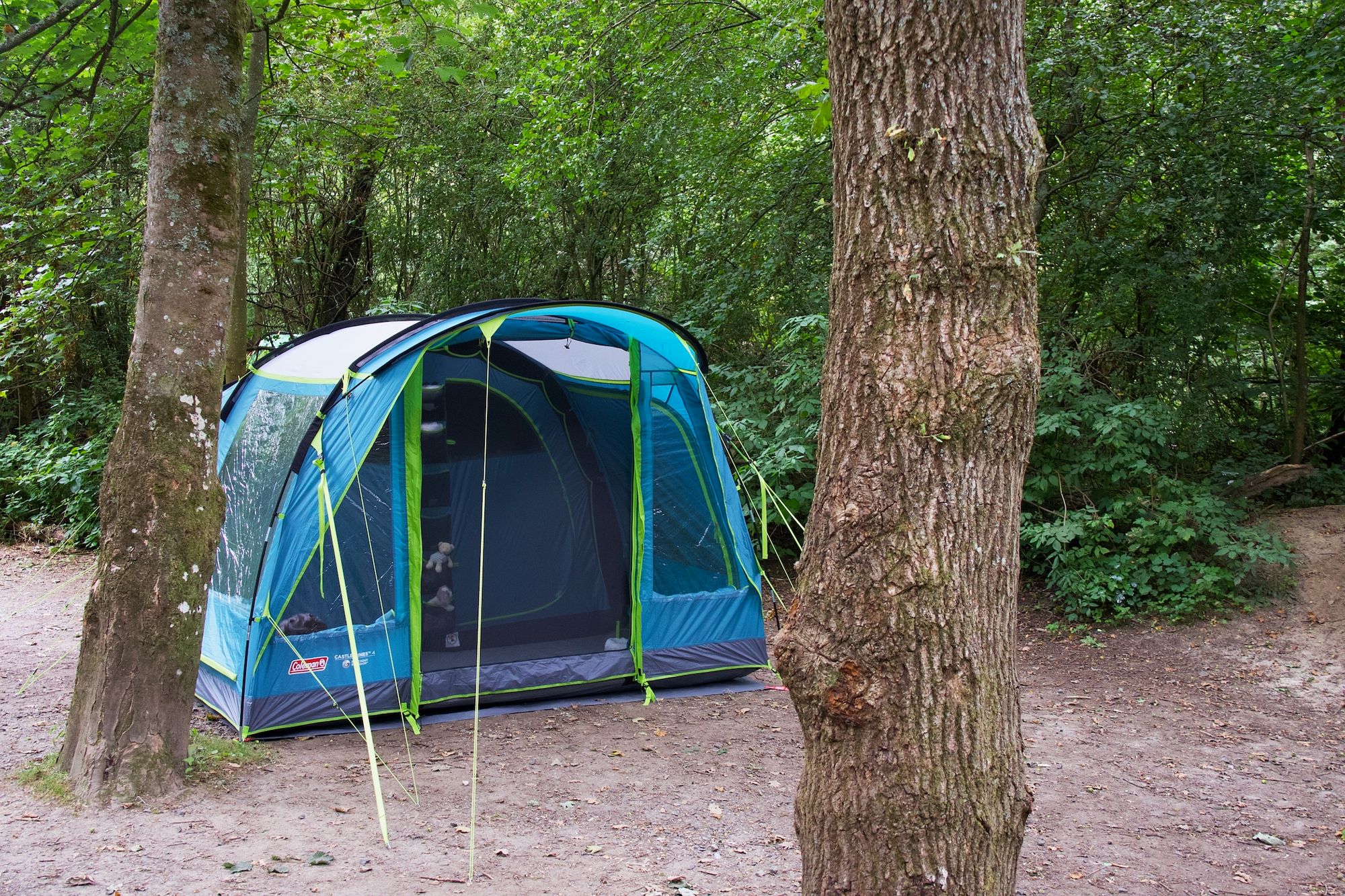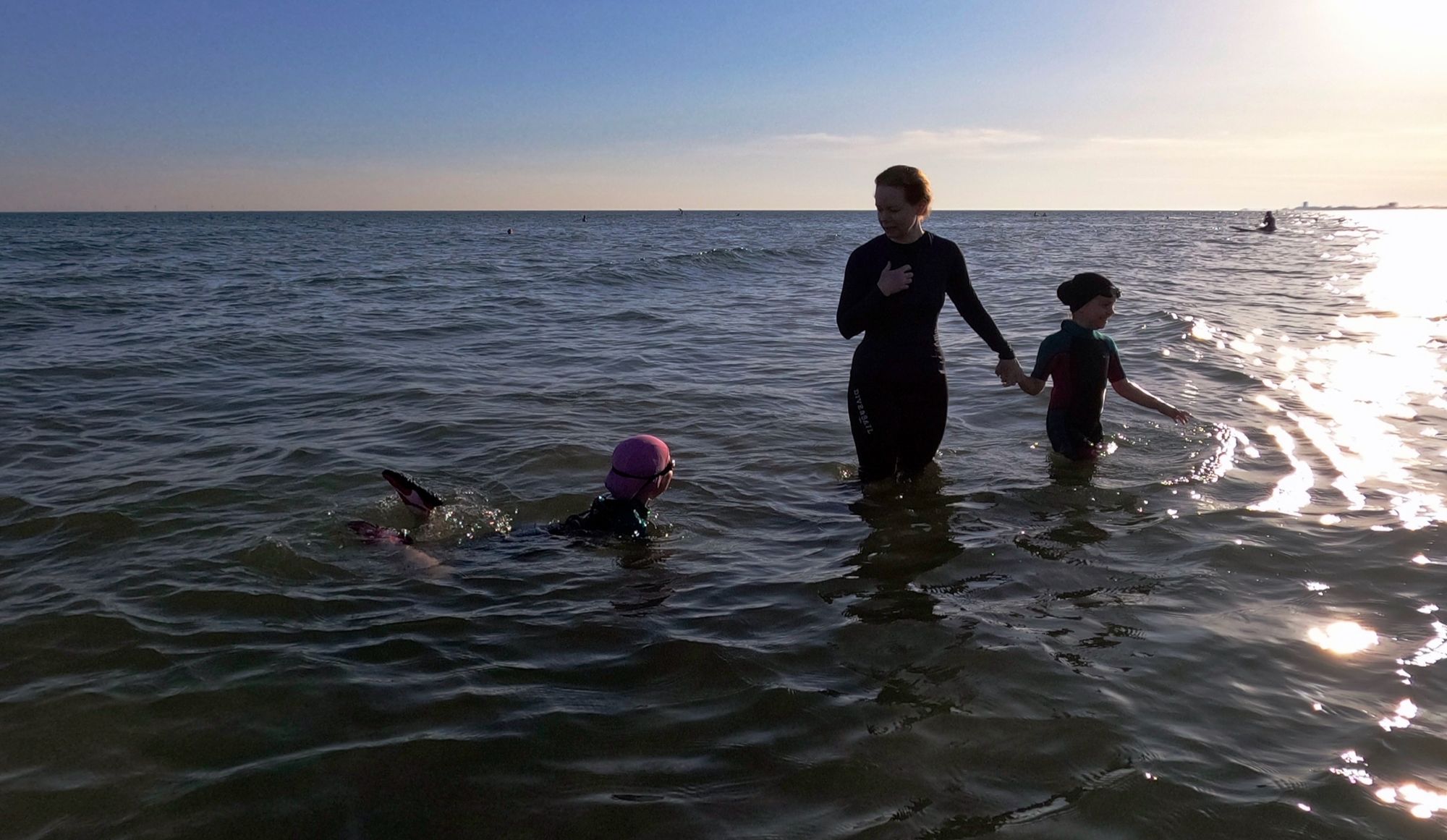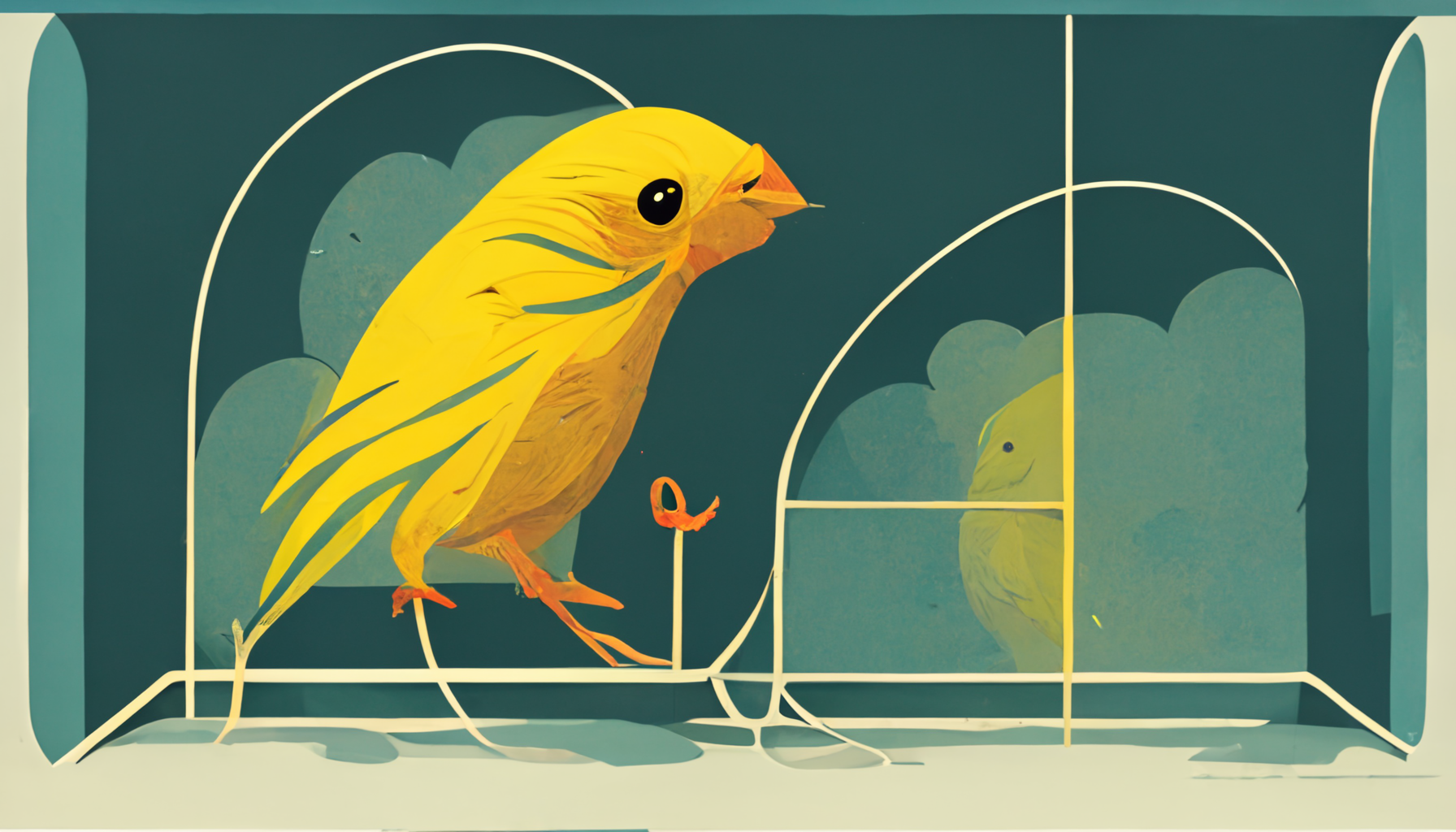
Stress and burnout in post-pandemic journalism
The summer's nearly over, and as people return to their desks, we need to start asking ourselves some hard questions about how hybrid working will change our working lives.
It’s been a good few weeks since I’ve darkened your screens. Why? I took a holiday. I know. How very dare I?
And it wasn’t just a “holiday” — where I stare at my phone in a different location. It was a proper holiday. A holiday where I did very little — if any — work for three weeks.
It has done me the world of good — and also made it clear to me that we have a growing epidemic to deal with in this industry; an epidemic of stress and burn-out. And we need to talk about that.
But before I talk about the wider issues, if you’ll indulge me, I’m going to talk about me.
One man (and his family) on holiday
We went, initially, to the Isle of Wight. The campsite we’d planned on using had to cancel our stay due to flooding, and so we ended up finding a more basic alternative far to the west of the island. We were camping in a valley with no Wi-Fi, and the merest sniff of mobile phone signal.
If you climbed the hill.
And stood on a gate.
This is the view from that very gate, in fact:

After a few days, I stopped fretting, and gave up on checking my email. And while the “what if someone wants to book a course” niggle continued, I started relaxing into it. Even when we returned to the wired world, I allowed myself to actually be on holiday, and ignore my devices as much as possible. When we headed off on our second trip, much more locally, I was relieved to find that the phone signal was all but non-existent there as well.

By halfway through that second trip, I began to feel like myself in a way I hadn’t for months. Lighter. Less burdened. Less anxious. My sense of humour came back. The words “West Country medicine” still bring my wife out in fits of giggles a week later.
And no, I’m not going to explain that one.
In fact, I hadn’t felt this good for years. And with that came the dawning realisation that I had been seriously, deeply burnt out. And I wasn’t even aware of it. I’d been too busy congratulating myself on surviving the pandemic financially, to realise the cost it had extracted in other ways.
The pandemic stress accelerator
Like many self-employed people, the pandemic was hard on me. Much of my work vanished in the spring of 2020, and I’ve been rebuilding my business since then. The two sets of schools closures were serious set-backs on that journey. I picked up more than half of the home-schooling responsibility, to help protect my wife’s job. Our daughters are at a one-form entry primary school, which meant virtually no online lessons at all, as the staff were too busy with the key worker and vulnerable children who were in school. So, I was spending more time teaching two sharp little girls than my normal spread of journalists and journalism students. And then spending all my evenings trying to what work I still had the energy for.
We didn’t take a holiday at all in 2020, and these few weeks in late summer were my first proper break in two years. It’s no wonder I was burnt out.
But I’m not writing about this for sympathy. I’m writing about this because burnout and mental health issues are becoming noticeably more common in the industry. One of the upsides of Twitter is that continuous partial awareness of how other people’s lives are going. While some people are just machines of relentless self-promotion (in of itself, a cause of stress for others), many people are more honest, and do give glimpses into their struggles.
Autonomy and agency
In fact, I’m aware that I have it easier than many: I’m self-employed, so there’s no reason I can’t address how I work directly. The only boss I have to answer to is myself. (Or, more honestly, my wife…) Those who are in “proper” jobs have more of a challenge ahead of them.
And the pressures are about to change dramatically. It looks like most journalism businesses will end up with some form of hybrid working system, part remote, part in the office, as we exit the pandemic. That’s both a possible boon to the industry — a topic I fully intend to return to — and a potential source of additional stress, which we can ill-afford.
We’re at an inflection point in the way we work — and that’s a good time to start a conversation.
Journalism burn-out
This week, the American Press Institute has written about burn-out in the industry, starting with the story of a small-ish newsroom editor who was over-whelmed by the different roles he was expected to play, without any support.
The real-life example above (small details were changed to protect the editor) is a warning sign for a disturbing legacy of the past year: the departure of burned-out editors and managers in media. Some have been high-profile, especially among journalists of color; others were under the radar at small but essential local newsrooms across the country. Also problematic are the managers who aren’t in a financial position to quit their jobs and are battling extreme burnout in silence.
One thing that’s troubled me as someone who has been lecturing to journalism students for around 15 years now, is the sheer number of them that get into the industry, do well, and then burn out and exit. We can’t afford to be losing that kind of talent.
The Lockdown stress accelerator
The pandemic has been an accelerator of many things, including the shift to remote works, and towards subscription revenue. But it’s also deepened the burnout crisis in the industry. My friend John Crowley ran a survey into this last year:
When asked directly about the coronavirus pandemic’s effect on their mood, 77% of respondents reported some kind of work-related stress which came during lockdown. Of these, 57% said lockdown-associated stress had affected their productivity. More than 44% said it had impacted their relationships with family and friends, and 59% said they had experienced moments of feeling depressed or anxious.
This isn’t just an issue of lifestyle and relationships outside work. This is eating badly into people’s productivity at a time when most titles are struggling for resources. And yes, that’s a vicious circle right there: fewer resources means more stress which means more burn our which means lower productivity which means more stress…
But at least now a hidden problem is becoming an open one.
Acknowledging a toxic culture
Look, journalism has never been a 9to5 kind of job. You work the hours needed to get the job done. We’re far from alone in that. But something we sometimes have in common with other industries is a certain pride in newsrooms being difficult environments, in the same way that, say, some chefs take pride in Michelin-starred kitchens being pretty toxic places to work.
Back in the early days of my career, I reported on ITV’s exposure of abuse in the kitchen of L’Ortolan, under then head chef, John Burton-Race. (The magazine I worked for is long-closed and was never online, but The Caterer still has a story up about it, even if the publication date is wrong.) I've heard repeated horror stories from friends, collegues and students about how some newsrooms operate. They might not throw frying pans around, but the acceptance of bullying and abuse is there.
Back when I started in journalism, you could walk away from the office. Unless I took my notebooks and a floppy disk home with me, I couldn’t work weekends. The internet has blurred the lines between work and home, and that distinction has slowly vanished with the advent of the smartphone, and then the pandemic-induced working from home culture.
Freelancers, the most common form of self-employment in journalism, have always suffered from an inability to switch off. If you switch off, you're not working, and so not earning. There’s no reassurance of the salary hitting your bank account at the end of the month.
Now, though, the problem is endemic throughout the industry — and it’s not helping anyone. Home is the office, and you can't escape work. It comes at you through nitifications, and bullying messages in chat apps, and constant, inescapable emails. Nobody works well like this. Employers aren’t getting value for money from burnt out staff, and neither are they laying the foundations for long-term business success.
Staff are one of the — if not the — biggest cost of any publishing enterprise. Not looking after your financial investment isn’t good business sense, even if you have no ethical qualms of working people until they break.
What we stand to gain
Journalism businesses benefit from the deep knowledge some journalists develop through reporting on the same beats for years — or decades — but losing people from the industry due to burn out just helps erode the average levels of skills. This is a downwards spiral we need to pull out of.
There are two phrases I often use in both my training and consulting work:
- “Work smarter, not harder”
- “Every publication needs to be looking much harder at what it needs to do less of, than what it needs to do more of”
Those feel like good starting points for reassessing elements of journalistic practice in the coming months — especially as increasing numbers of businesses adopt hybrid working models.
And so, I’m going to add another strand to what I write about here on OM&HB: managing workload in a journalism context.
And, meanwhile, I’m trying to avoid slipping back into bad pandemic habits, and concentrate on doing things like post-work and school family swims…

If you need help…
If stress and burn out are becoming an issue in your newsroom, the Headlines Network are launching a series of free workshops later in the year.

Sign up for e-mail updates
Join the newsletter to receive the latest posts in your inbox.











